The Lagos rave scene is going strong

The Nigerian city is world-famous for Afrobeats and slick party culture. Now, a growing community of liberally-minded young people are flocking to impromptu venues for hard-hitting house tracks.
Music
Words: Ify Obi
Photography: Wole Babalola
Like an active volcano, a sea of steaming bodies erupts on the dancefloor, as Ayra Starr’s soulful Afrobeats song Rhythm & Blues takes on a new life as a deep house track. It might sound a bit chaotic on paper, but this remix works all too well, pounding from the speakers in unison with green flashing lights. There are clouds of cigarette and weed smoke, joyful screams and raised hands in the air.
This is Group Therapy, a monthly rave in Lagos. Here, Detroit techno, South African gqom, Nigerian Afrobeats and Chicago house exist harmoniously under one roof until the crack of dawn. Tonight’s party is taking place at La Madison, a multi-purpose events space in the Lagos State city of Lekki, while previous raves have been thrown in impromptu venues including film studios and warehouses. The unspoken yet widely acknowledged rule? To let loose and give in to the night. “Once I hit the dance floor, I don’t care who’s playing as long as I can make my body move,” says Tobi Jaji, a frequent raver. “I just forget about everyone and stay in the moment.”
On this night, like most of the crowd in the spacious tent-like building, Tobi is out to celebrate Group Therapy’s first anniversary. The night’s founder, Aniko, started taking DJing seriously during lockdown and developed a passion for dance beats. “I already knew how to DJ. It was just a fun hobby for me, but I was more interested in playing Afrobeats, the indies, and alternative music,” she explains. “About two years into it, I pivoted to house music. That’s where I felt the most comfortable.”
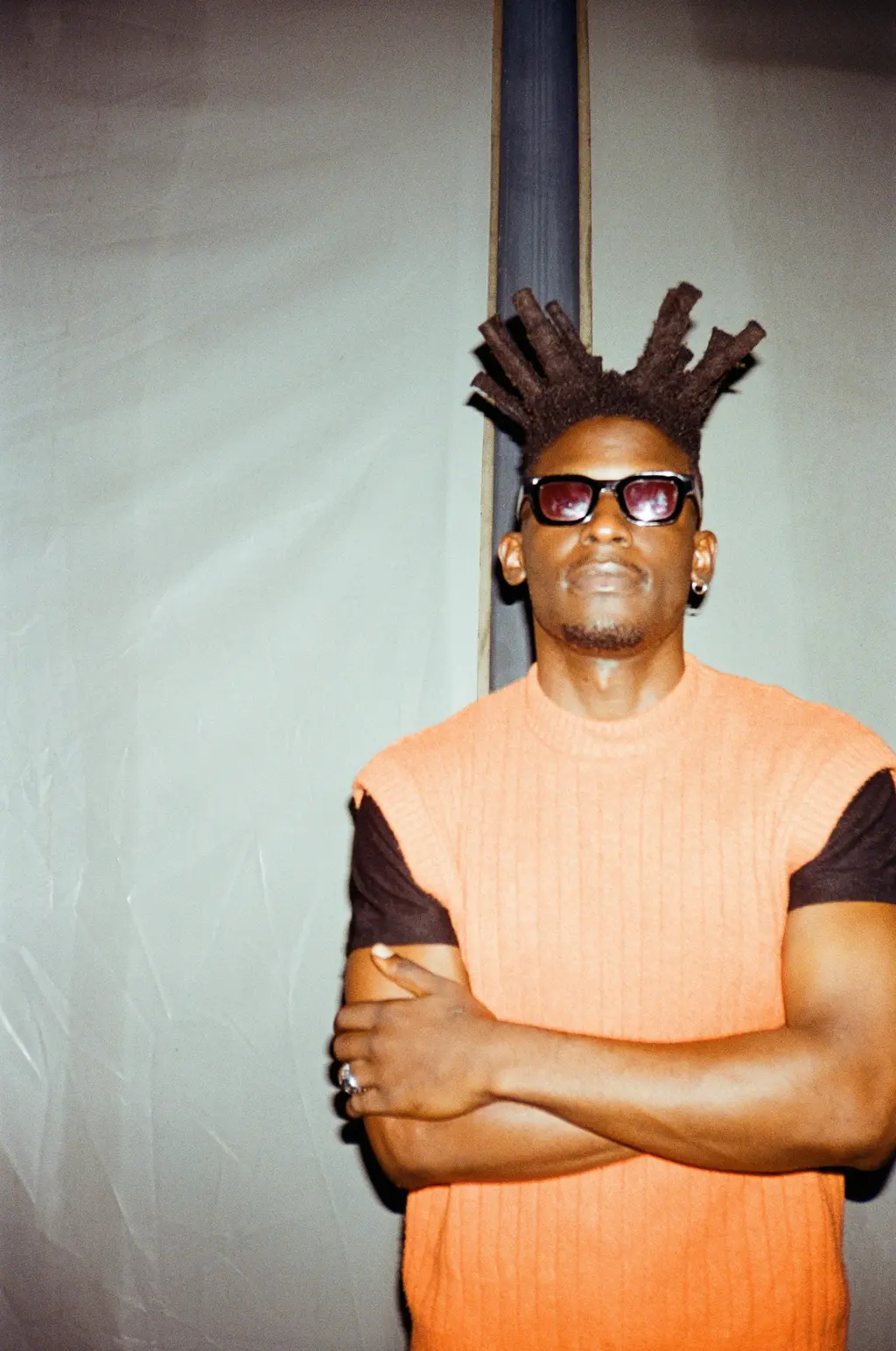
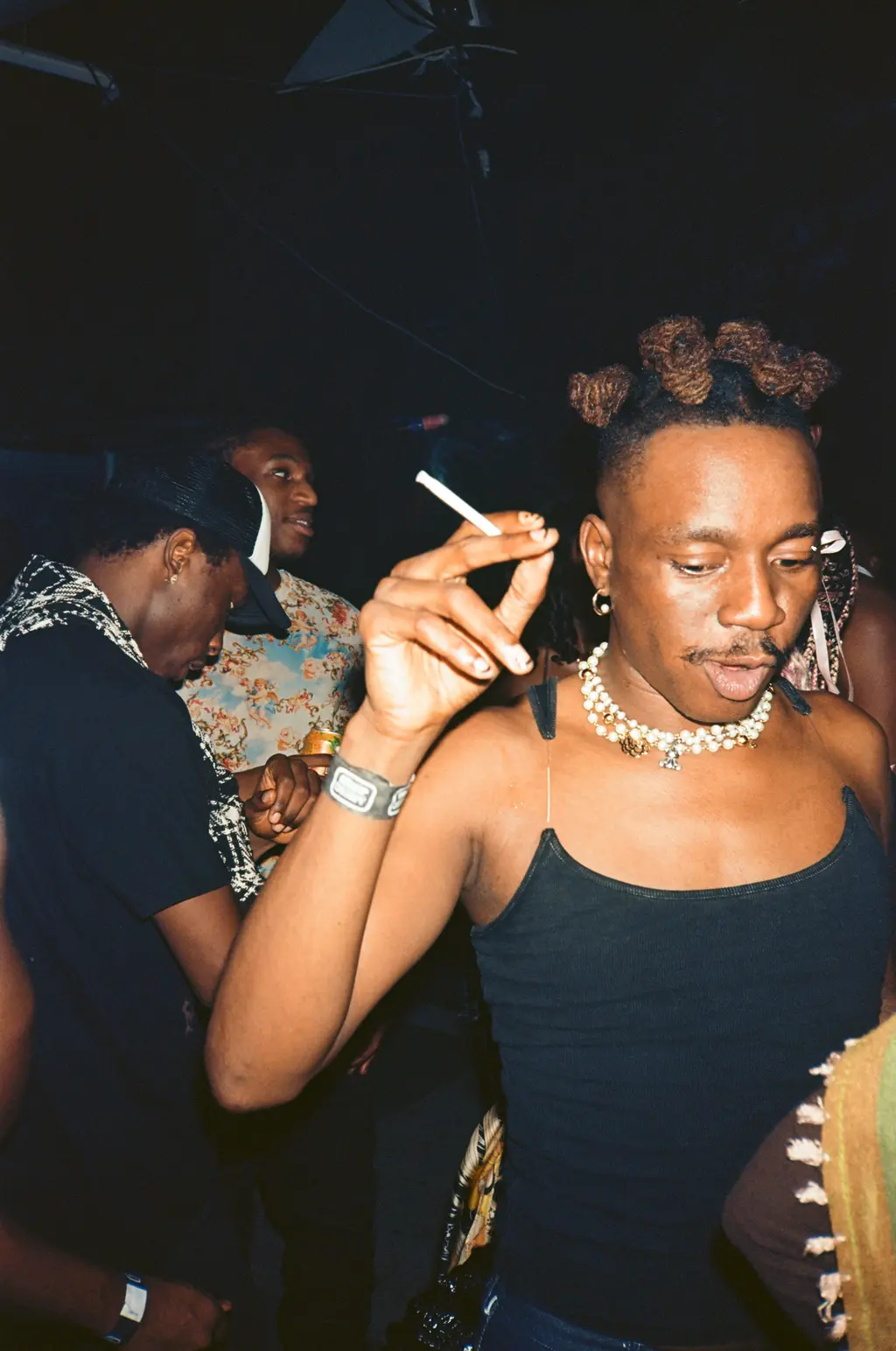
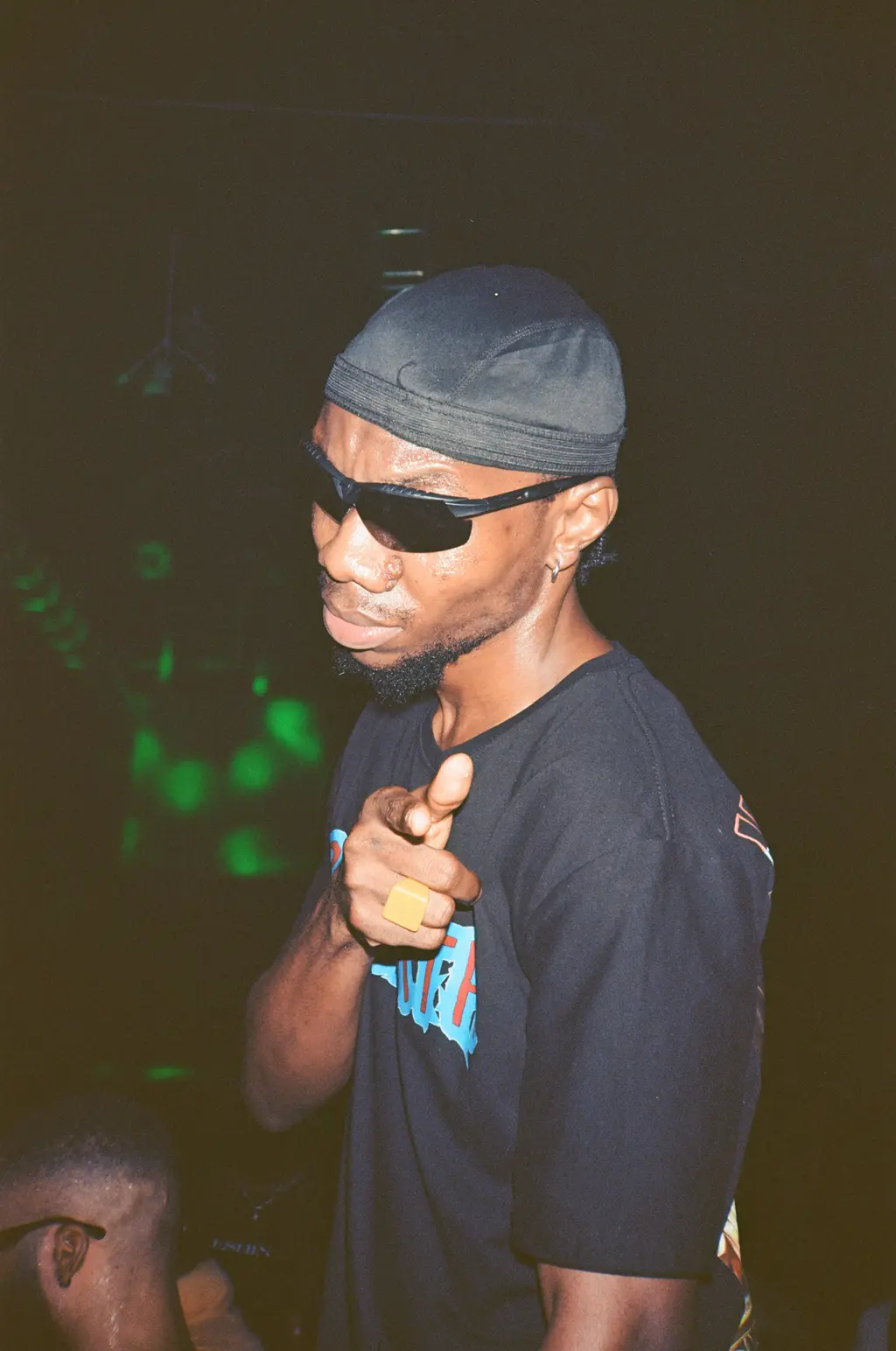
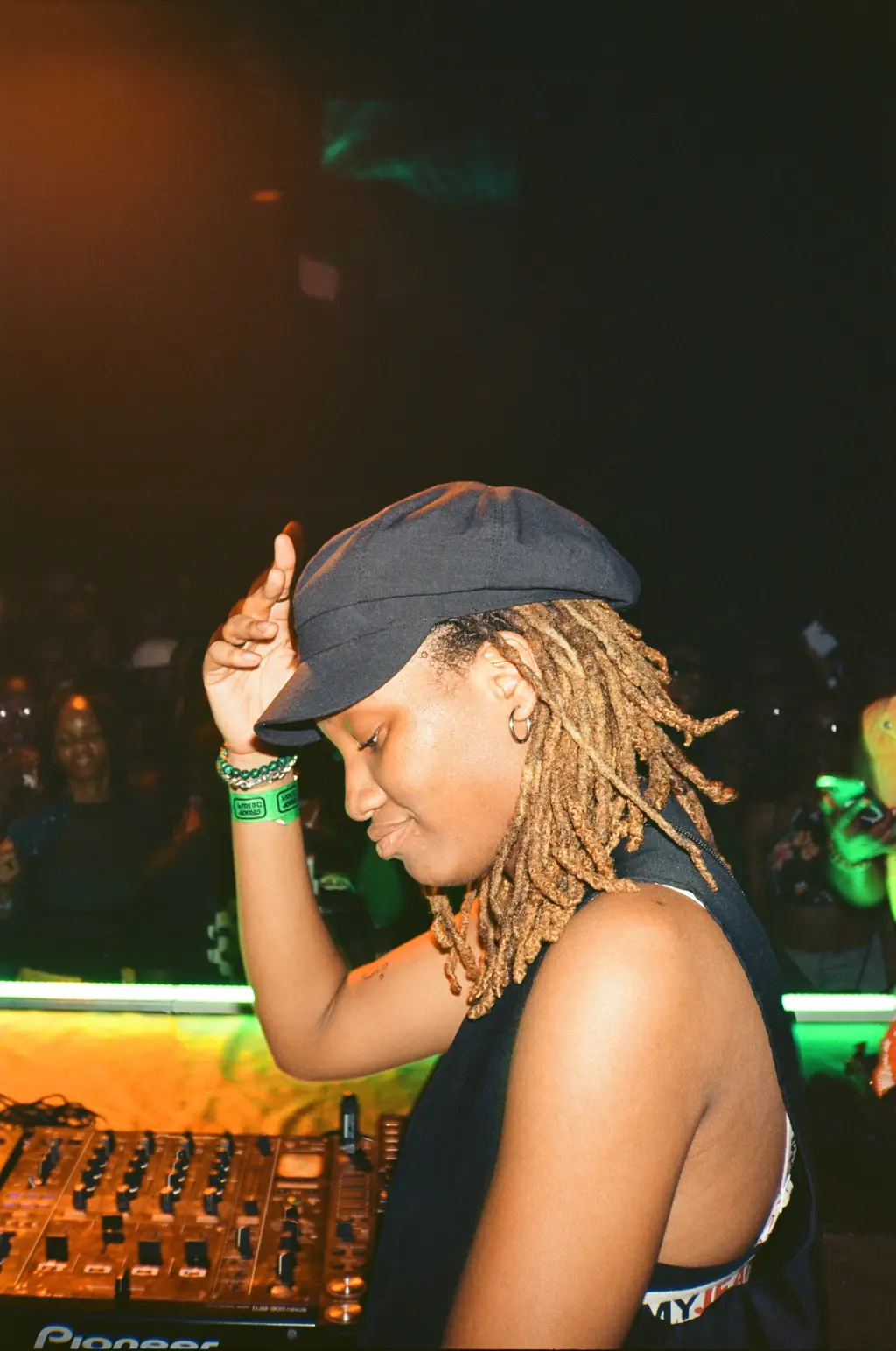
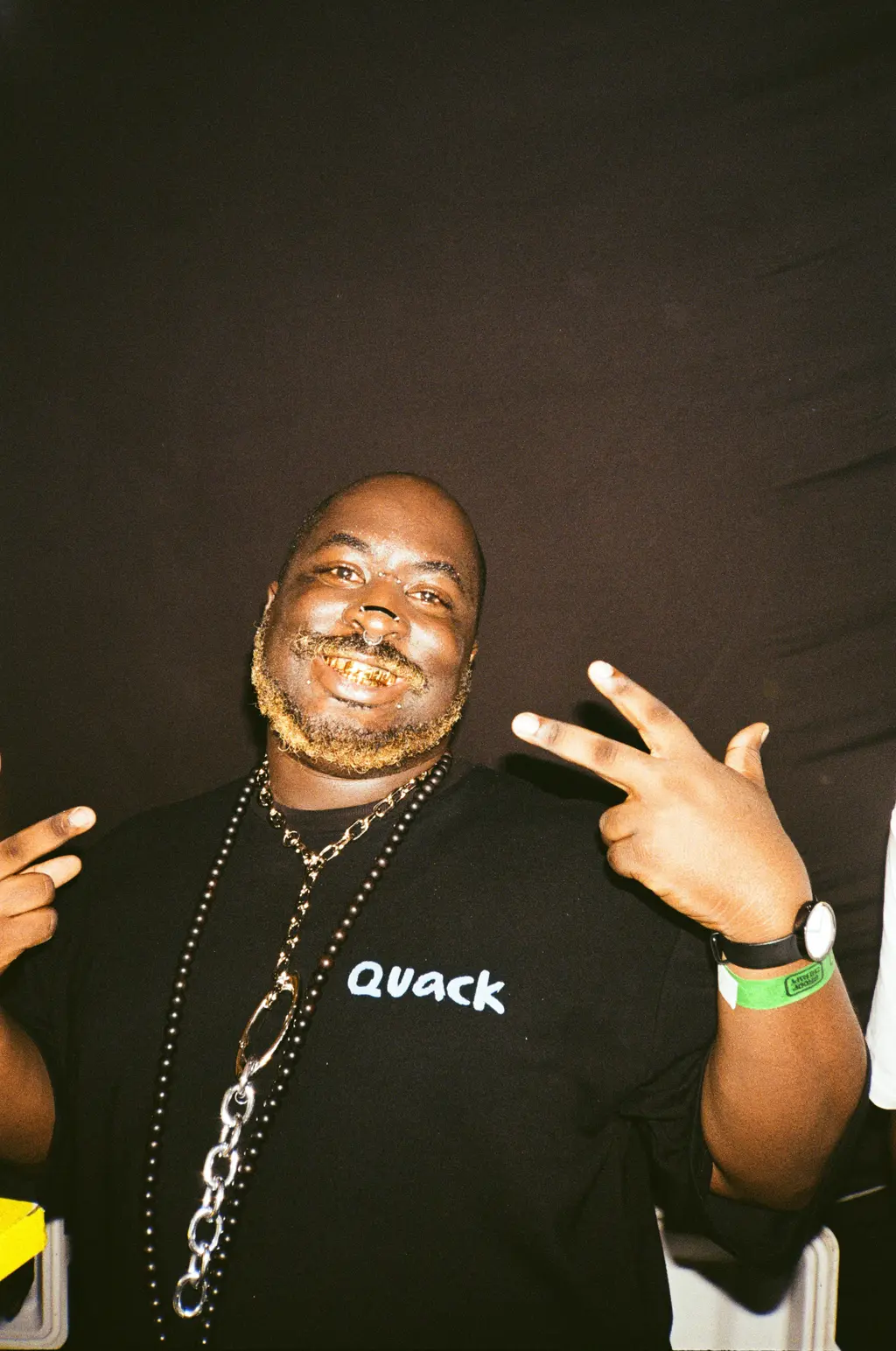
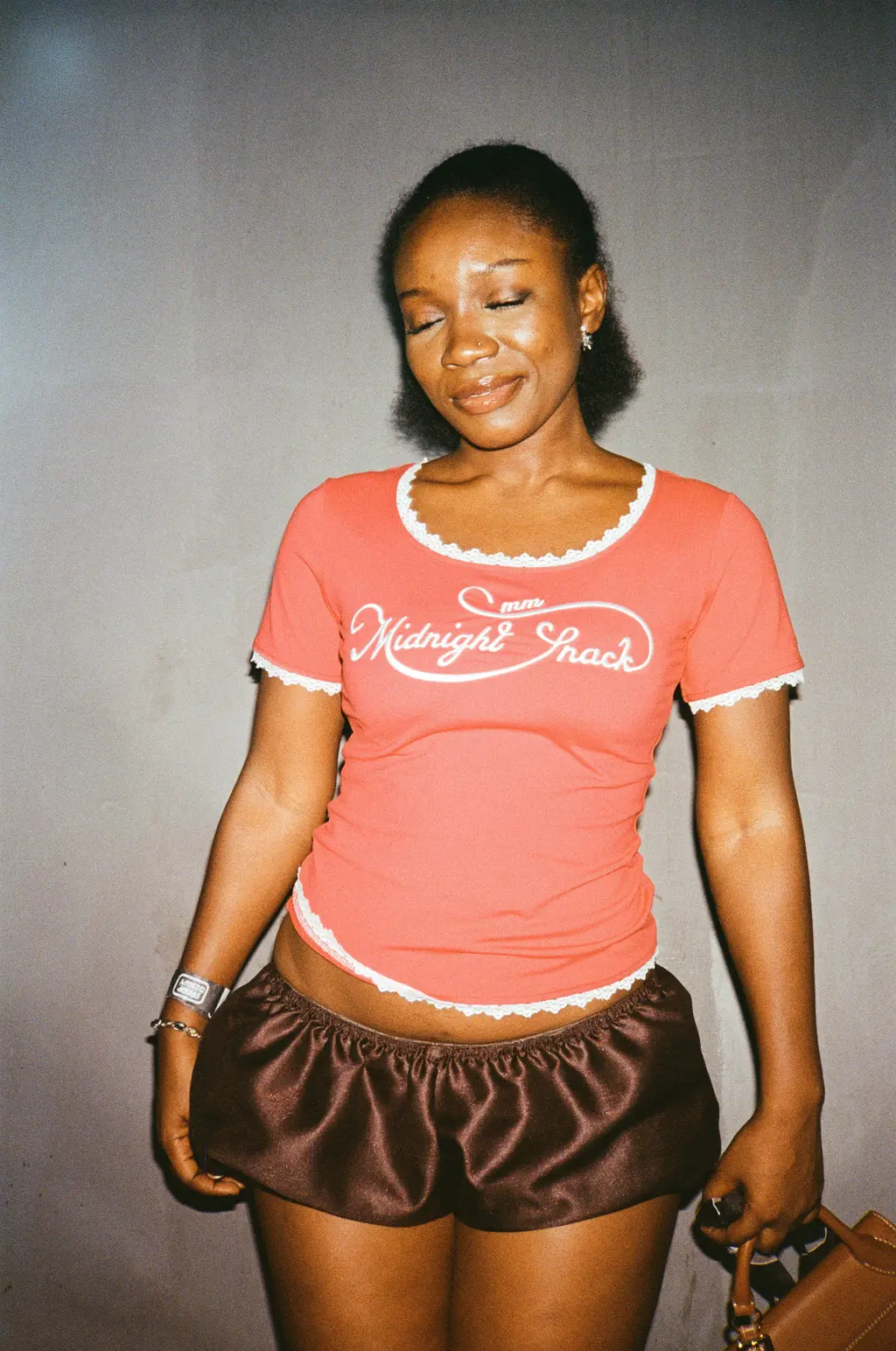
It is without a doubt that Afrobeats is the leading music genre in Nigeria. Afrobeats finds itself at the core of most cultural and social experiences in the country. You will hear playing in markets, on the radio and at weddings. In recent years, the rest of the world finally caught the Afrobeats bug; the genre now has its own categories in international award shows, its stars are climbing the global charts and it’s enjoying a surge on streaming platforms.
In the Afrobeats capital of the world, house music’s presence in Lagos feels incongruous. Yet, raves such as Group Therapy, Sweat It Out, Element House and Mainland House are now thriving with a single mission: to spread the gospel of the city’s electronic music scene and export its talents to the world. “I had to tell myself that people were not going to like this, but I just had to own my sound and move forward with it,” Aniko says. “My main aim is to build a community and expand it to a point where people are like, ‘Oh, I actually like house music.’”
“From the first few moments when I started raving in Lagos, I knew that there was a fruitful seed being planted”
CODENAME:KND, DJ and founder of Mainland House
The scene’s ethos of inclusivity is one of the reasons it’s appealing to young people. In contrast to the city’s more mainstream, club-centric nightlife, these raves offer relief from the more sickly parts of Nigerian society, where homosexuality is criminalised, women are constantly objectified and socio-economic inequality as well as political tensions seek to keep the country divided. When you’re out raving, all of this is momentarily left at the door. As a pinned post on its Instagram page boldly declares: “Group Therapy is not just a rave. It’s a community where everyone is welcome, cherished, and respected. We do not tolerate any form of discrimination, including classism, sexism, racism, homophobia, or any other hurtful behaviour.”
For first-time raver Quadri Abdulmalik, who I met at Group Therapy, the statement rang true. “We live in a time where a lot of people struggle to find safe places where they can be themselves without fear of violence and discrimination,” he tells me via messages on X. “From my experience, [Group Therapy] did a good job at providing that.”

At Lagos raves, the dress code is liberal and the vibe is relaxed. You won’t get turned away at the door for wearing flat shoes or sneakers instead of heels. Cocktail service is readily available, as opposed to spending your monthly income on bottles. There’s no judgement for not wearing the flashiest designer brands.
CODENAME:KND, a local DJ and founder of the Mainland House raves, refers to an isolating spirit of individualism that can be found in some Lagos clubs. “Extravaganza is needed for mainstream nightlife culture to thrive,” he says. “There’s no intentionality as to why people are going to the mainstream clubs.” The younger generation, he thinks, seeks to avoid this favour of the community support encouraged at raves.
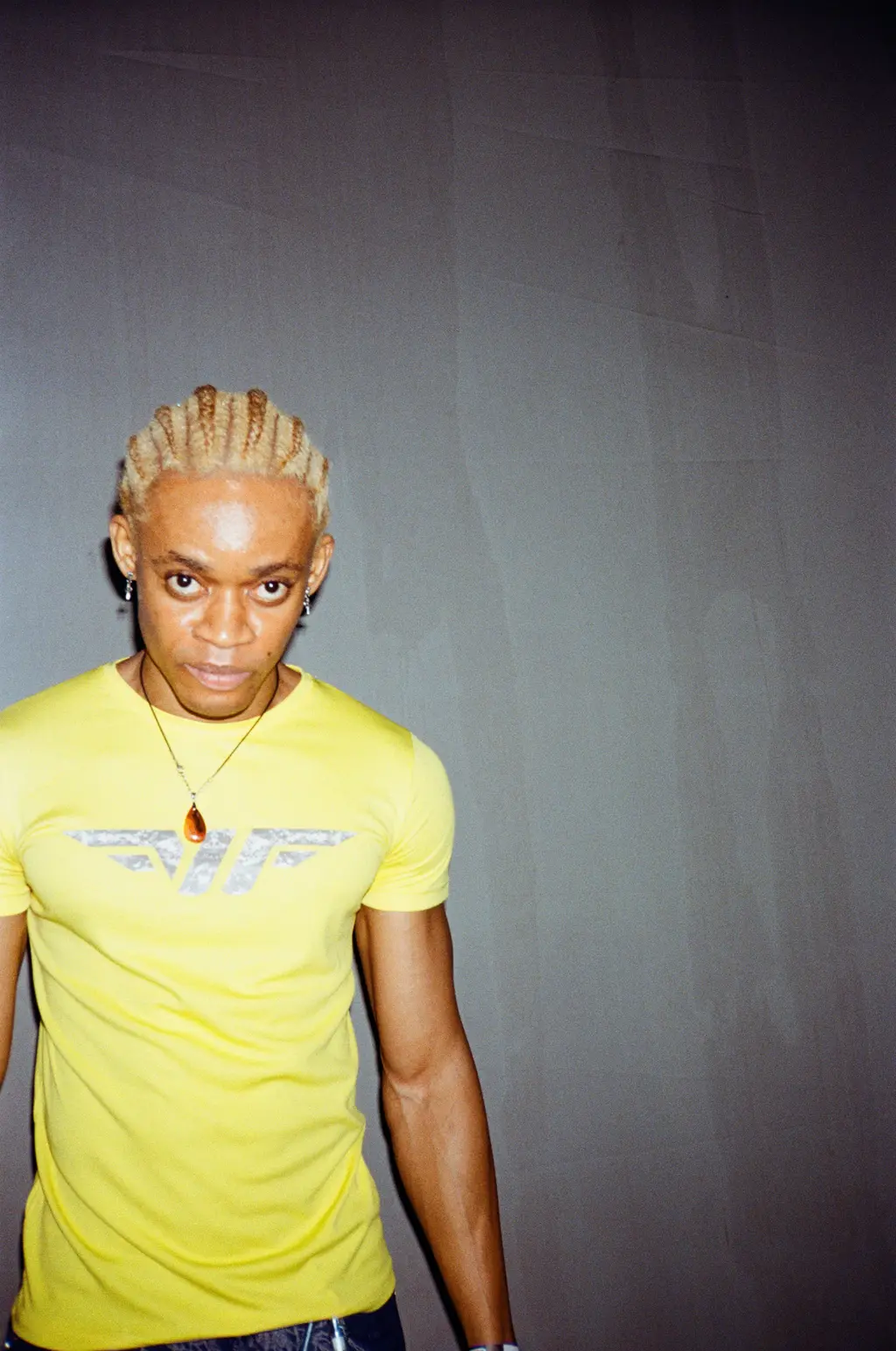
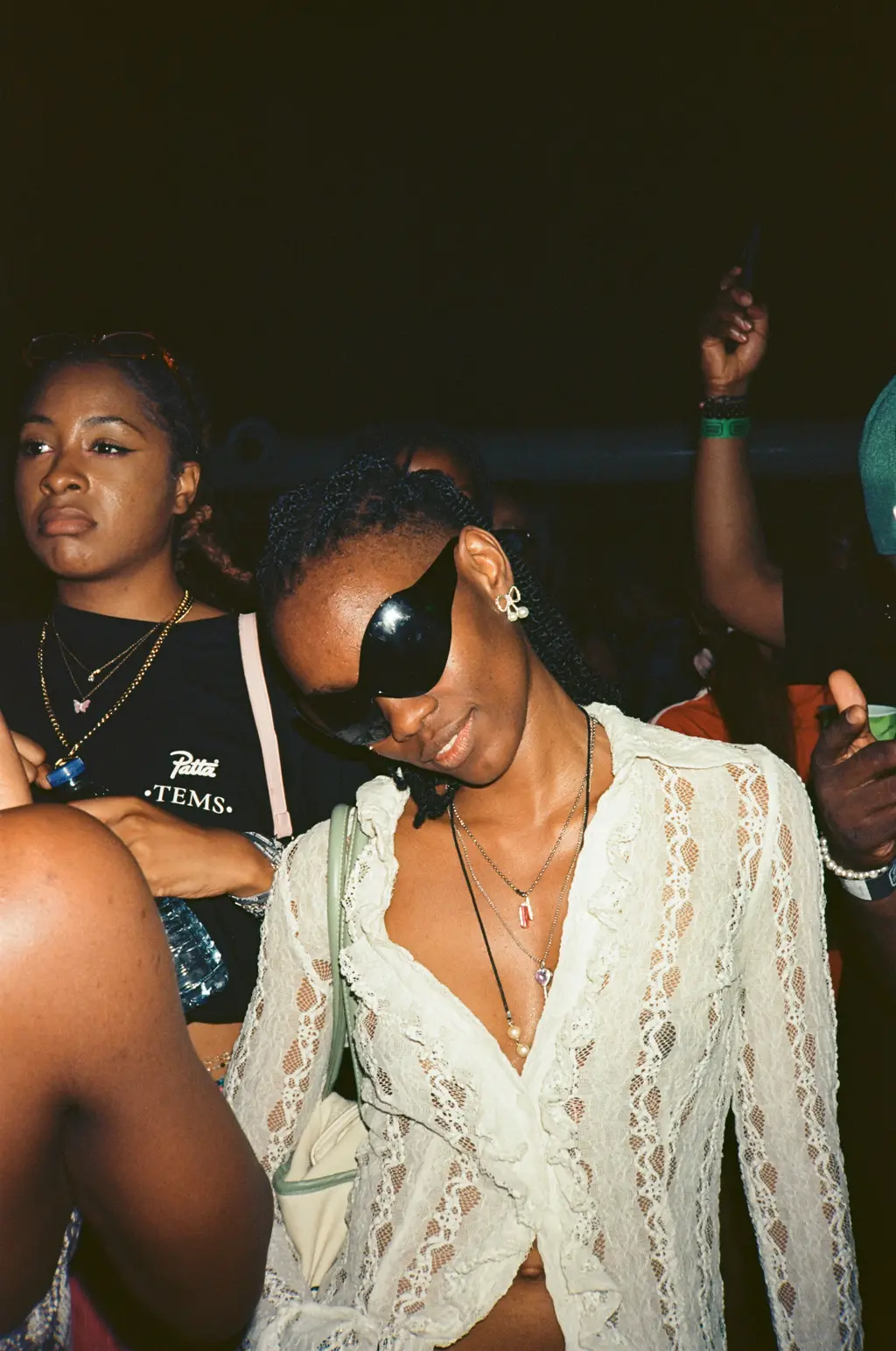
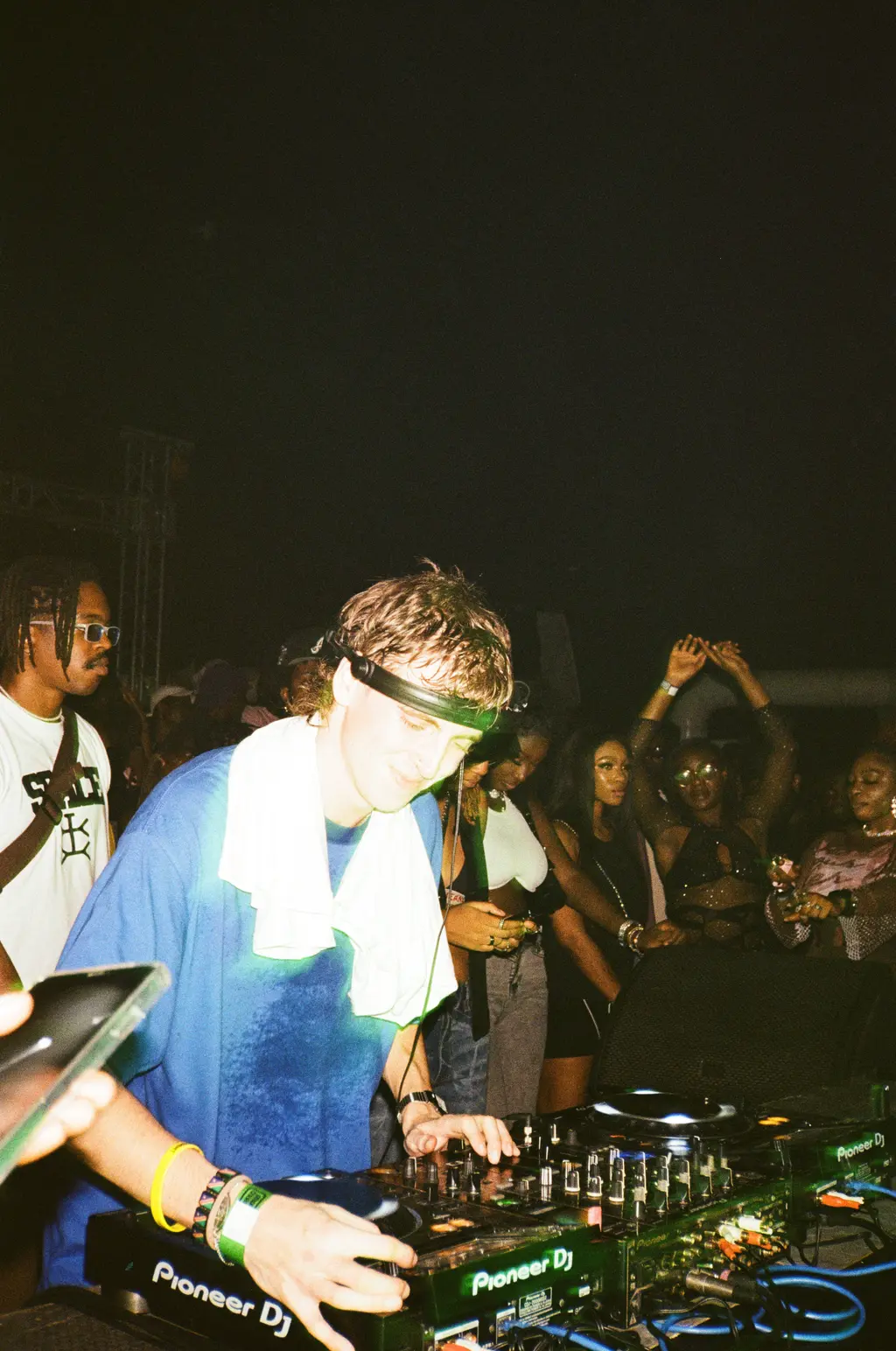
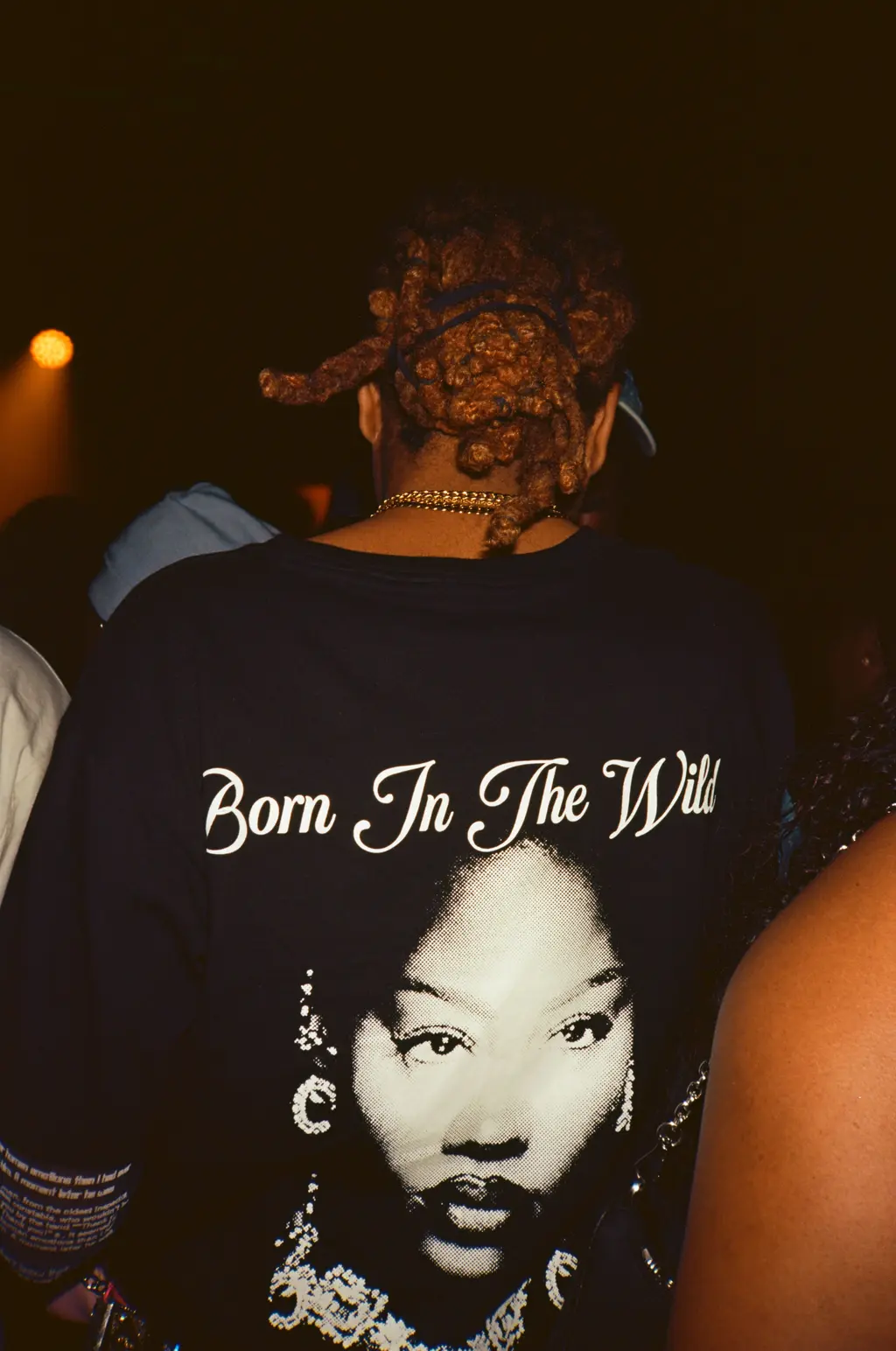
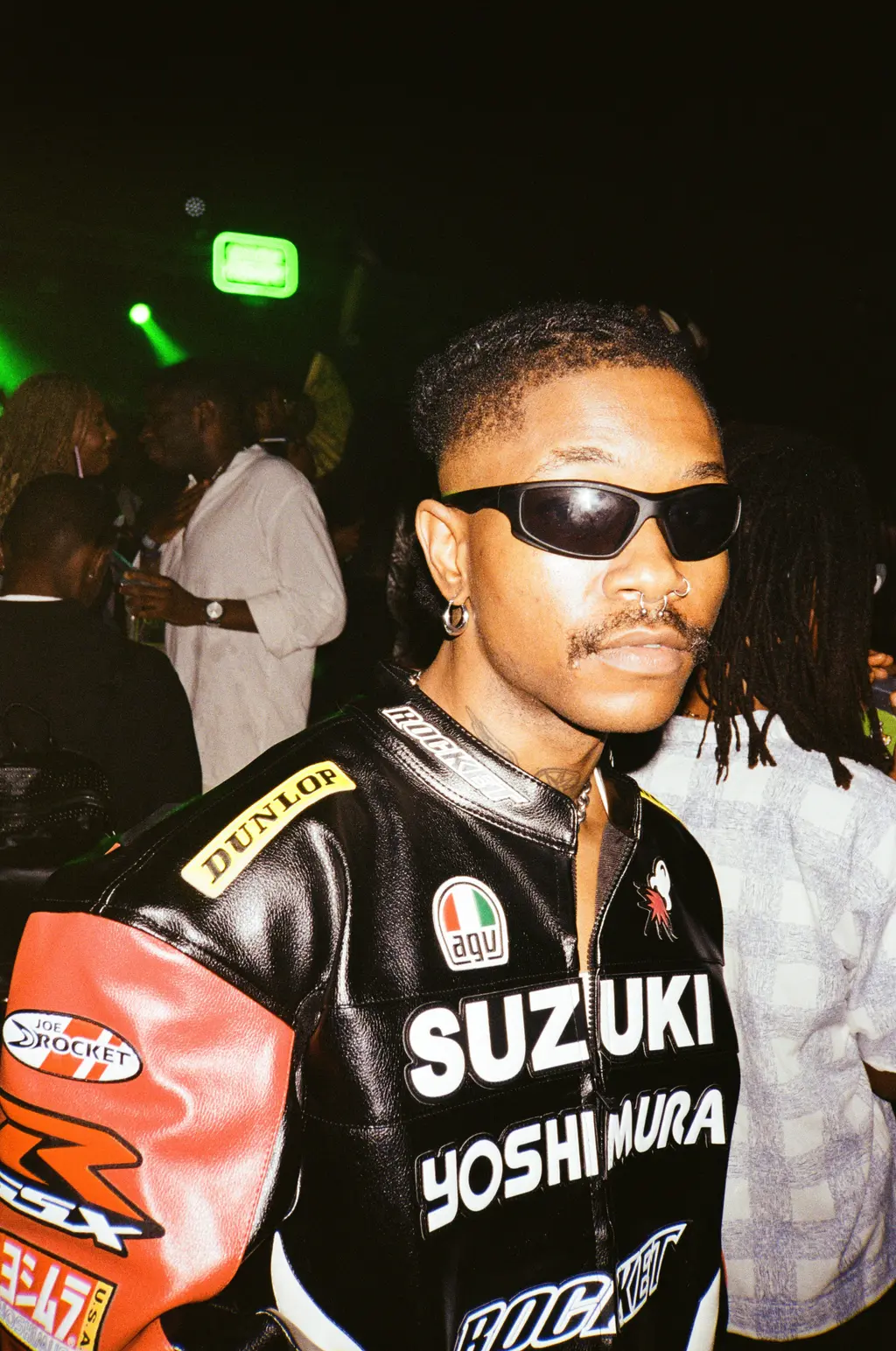
Weareallchemicals, one of Group Therapy’s resident DJs, talks about solidarity between the Lagos rave crews. “My favourite thing about the rave communities is how supportive they are of one another,” she continues. “There are no rivalries, and they help one another out. For example, at the start of Group Therapy, the guys at Sweat It Out gave ideas. Whenever there’s a Group Therapy party, the guys at Element House show up.” When Sweat It Out recently had to postpone a party after the venue closed due to the End Bad Governance protests, the scene rose to the occasion. “People threw impromptu raves in less than 24 hours, and people showed up,” Weareallchemicals says. “It’s crazy.”
At Group Therapy, as the crack of sunlight begins to beam through the windows at dawn, new friends and love interests formed from hours on the dancefloor are sealed with kisses and hugs. Exhausted and exhilarated, everyone trots back to their cars or climbs into Ubers. The dancefloor might be empty for now, but the energy lingers. House music has affirmed its place in Lagos’ youth culture for another night and earned some new converts. “At first it was a bit strange to me, but I quickly settled in,” Quadri says. “It was amazing.”












